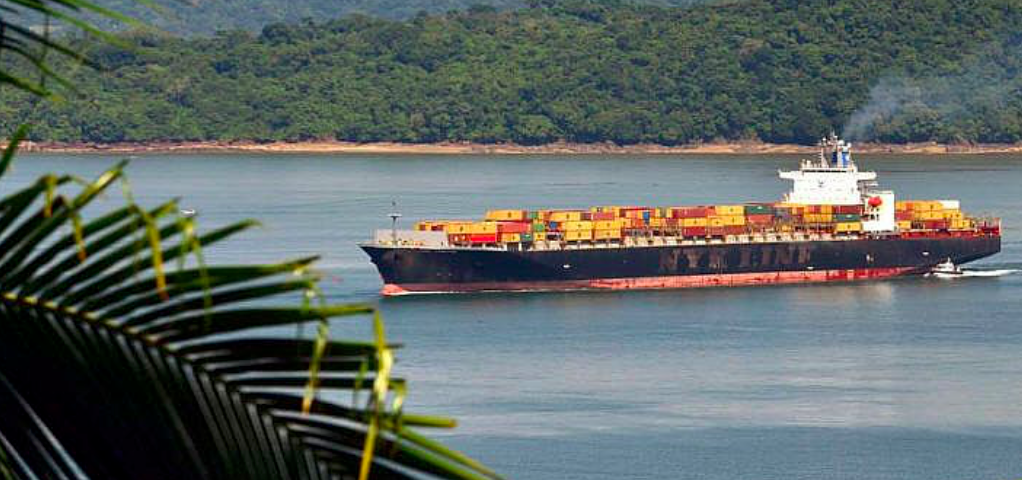On January 11, the Iranian Navy announced plans to expand its military operations to the Panama Canal later in the year to increase its presence in international waters.
According to experts, this move is a sign that the Islamic country wants to strengthen ties with its Latin American allies and challenge the United States.
“So far we have been present in all strategic straits in the world and not just in two straits,” said Rear Admiral Shahram Irani, commander of the Iranian Navy, according to the Tehran Times. “This year […] we plan to be present in the Panama Canal.”

According to Rear Admiral Irani, Tehran has already set up command centers for the Indian, Pacific and Atlantic Oceans.
Connecting the Atlantic and Pacific Oceans, the Panama Canal is one of the two most strategically important man-made waterways in the world.
Panama is about 3,000 kilometers from the southern border of the United States.
Iran‘s goal has always been to have a military presence in Latin America.
“So it’s not surprising that the Iranian Navy is announcing it will target the Panama Canal,” Joseph Humire, director of the Center for a Secure Free Society, told The Washington Free Beacon.
“This is a huge escalation. A lot of people might underestimate Tehran in terms of its capabilities […] but I wouldn’t underestimate it […],” Humire said.
“This is what Iran has been building in Latin America for the last 30 or 40 years, opening embassies, forging bilateral deals and conducting military exercises with allies like Russia, China and Venezuela in the Caribbean,” he added.
REAL THREAT
Rear Admiral Irani’s announcement “should be viewed as a violation of Panama’s sovereignty and territorial integrity,” said Alonso Illueca, professor of international law at the University of Santa María la Antigua in Panama.
The deployment of Iranian warships in the Panama Canal poses a threat to world security, the Panamanian newspaper Crítica reported.
Iran wants to provoke the United States and show that it is capable of moving its military apparatus near US territory, Free Beacon reported.
According to US news channel NewsNation, the move would be a step for Tehran towards a growing relationship with its allies, dictatorial-led countries like Venezuela and Nicaragua.
GROWING CONCERN
“In recent years, Iranian ships have increasingly docked in Venezuelan ports in support of dictator Nicolás Maduro,” reports Free Beacon.
Latin American dictatorships are also being used by Iran as a means of circumventing US economic sanctions and expanding its arms and drone deals.
Tehran’s presence in the Panama Canal is a cause for concern as it could be used for arms smuggling, British daily Express reported.
The US is monitoring “Iran’s attempts, or at least its intentions, to establish a military presence in the Western Hemisphere,” said Ned Price, spokesman for the US State Department, in a Jan. 12 news conference.
On January 2, Australia said it had tracked two Iranian warships transiting the South Pacific in November 2022. The ships, including an Iranian frigate and a converted oil tanker, docked in Jakarta before heading to the Pacific.
INFLUENCE
“Iran’s concerted efforts to expand its influence in Latin America are part of its broader agenda to […] realize its imperialist and hegemonic ambitions,” said Iranian-American political scientist Majid Rafizadeh.
The Iran-backed terrorist group Hezbollah has also increased its presence in the Latin American region.
The group’s fighters are known for roaming freely in Venezuela and in the tri-border area with Brazil, Paraguay and Argentina, Free Beacon reports.
“It is of the utmost importance to investigate and counter the Iranian regime’s efforts to export its fundamentalist ideology not only to the Middle East but also beyond,” Rafizadeh said, according to Arab New Jan. 8.
The United States should address all aspects of the Iranian threat, drain Tehran’s finances and develop an ongoing pressure campaign to encourage the collapse of this “brutally repressive regime,” according to the Washington, D.C.-based Foundation for Defense of Democracies in a report from January 10th.

